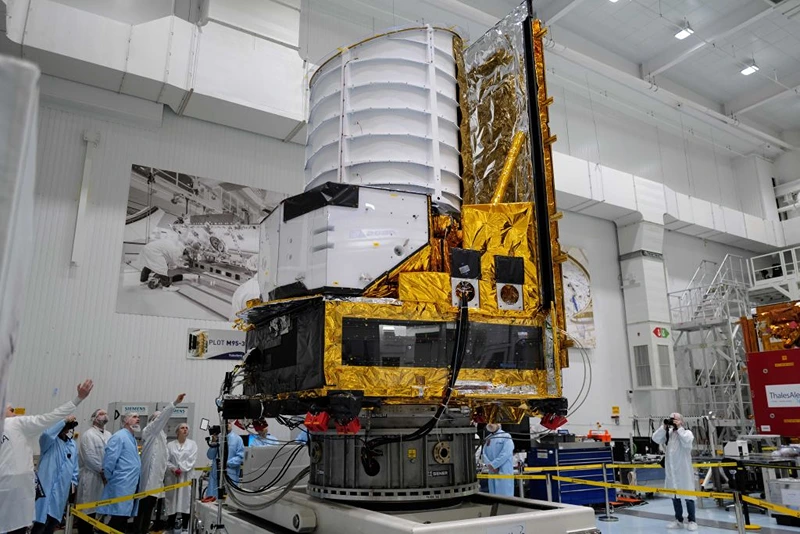

OAN’s Roy Francis
9:00 AM – Saturday, July 1, 2023
The European Space Agency’s Euclid spacecraft lifted off on a SpaceX Falcon 9 rocket from Florida on Saturday on a mission to chart the history of the universe.
Advertisement
The spacecraft will conduct additional maneuvers in orbit around the earth before the space telescope attached to the rocket will separate and begin its journey into outer space. The telescope has begun its journey, the first of its kind, to chart the history of the universe as far back as 10 billion years.
The purpose of the journey is for the Euclid space telescope is to explore how dark matter and dark energy have affected and shaped the universe throughout space and time. Dark matter is believed to make up most of the universe, although it is only observable through its gravitational effect. Dark energy is the force that is believed to be pushing the expansion of the universe at an accelerating rate.
The Euclid will spend around a month on its journey to the Sun-Earth Lagrange Point 2, about one million miles away and on the opposite side of the sun to earth. At Lagrange Point 2, the gravitational pulls of the Earth and the Sun cancel each other out and will place the Euclid in a strategic point to conduct its observations and data collections without the Earth or Moon blocking its view.
The Euclid will study and gather data from over a third of the extragalactic sky over the next six years. The telescope boasts a field of vision around 250 times larger than the Hubble Space Telescope and will cover wide swaths of the extragalactic sky at once.
The European Space Agency had initially planned to launch the telescope on either a Russian Soyuz rocket, or an Ariane 6 rocket. However, after the invasion of Ukraine and the delays of the Ariane 6, the agency partnered with SpaceX for some of its launches.
Euclid will spend a month on its way to the Lagrange Point 2, once it reaches its destination, it will take another three months testing its instruments before it is able to start transmitting data back to Earth.
Stay informed! Receive breaking news blasts directly to your inbox for free. Subscribe here. https://www.oann.com/alerts






Be the first to comment